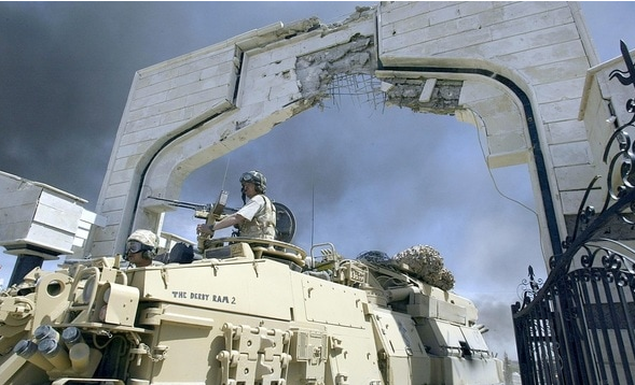Tony Blair’s half-hearted apology for the way he dragged Britain into war in Iraq is scarcely surprising, but many others will also be in the firing line
It is scarcely surprising that Tony Blair gave a half-hearted apology for the way he dragged Britain into a disastrous invasion of Iraq. What is more surprising is that he had not done it much sooner – and that he did it to an American broadcaster.
Blair knows full well that he will be heavily criticised by the Chilcot inquiry for the way he joined George Bush’s invasion without properly informing his cabinet, let alone parliament and the public, and for rejecting advice from his government’s law officers.
Blair apologised “for the fact that the intelligence we received was wrong”. He knows full well MI6 is an easy target.
He knows many others will be heavily criticised when the Chilcot report is published, almost certainly next year. Near the top of the list, along with Blair himself, are likely to be the former head of MI6 Sir Richard Dearlove, and the head of the joint intelligence committee, Sir John Scarlett. But Chilcot is expected to cast his net far and wide.
Judging from the evidence he heard, many others will be in the firing line. They include: Jack Straw, the then foreign secretary who was responsible for MI6 and rejected the clear advice from his top law officers that the invasion was illegal; Geoff Hoon, the defence secretary who went along with Downing Street’s instruction that military commanders must not be seen to prepare for war to avoid upsetting the UN; military commanders for not objecting as much as they should have done and Clare Short, the international development secretary, for not helping with the reconstruction because she was opposed to the invasion, believing it to be unlawful. (Short says the problem was Blair instructed the military, bypassing her department, to deal with Iraq’s reconstruction.)
Chilcot, whose inquiry was set up by prime minister Gordon Brown in 2009, has been lambasted for the delay in publishing his report. He has been criticised for agreeing that Whitehall – specifically its chief gatekeeper, the cabinet secretary – would have the final say over what documents given to his inquiry can and cannot be published.
Fierce and protracted arguments, notably over what could be revealed about what Blair promised Bush, were responsible for the initial delays. Chilcot promises that more will be published about the contents of private discussions between a British prime minister and an American president than ever before.
Further delay was the result of the so-called “Maxwellisation” process whereby those Chilcot intended to criticise would have the opportunity to respond to drafts of the relevant passages.
Chilcot has made it clear that Whitehall has conducted a guerrilla campaign, specifically by giving to those the inquiry wanted to criticise documents that would help them in their defence. Those documents had not been given to the Chilcot panel. So Chilcot deserves some sympathy.
Blair may hope those delays, and his admission that some “mistakes” were made, will help to take the sting out of a report that should, given all the evidence it heard, be damning.
View the article


 RSS Feed
RSS Feed